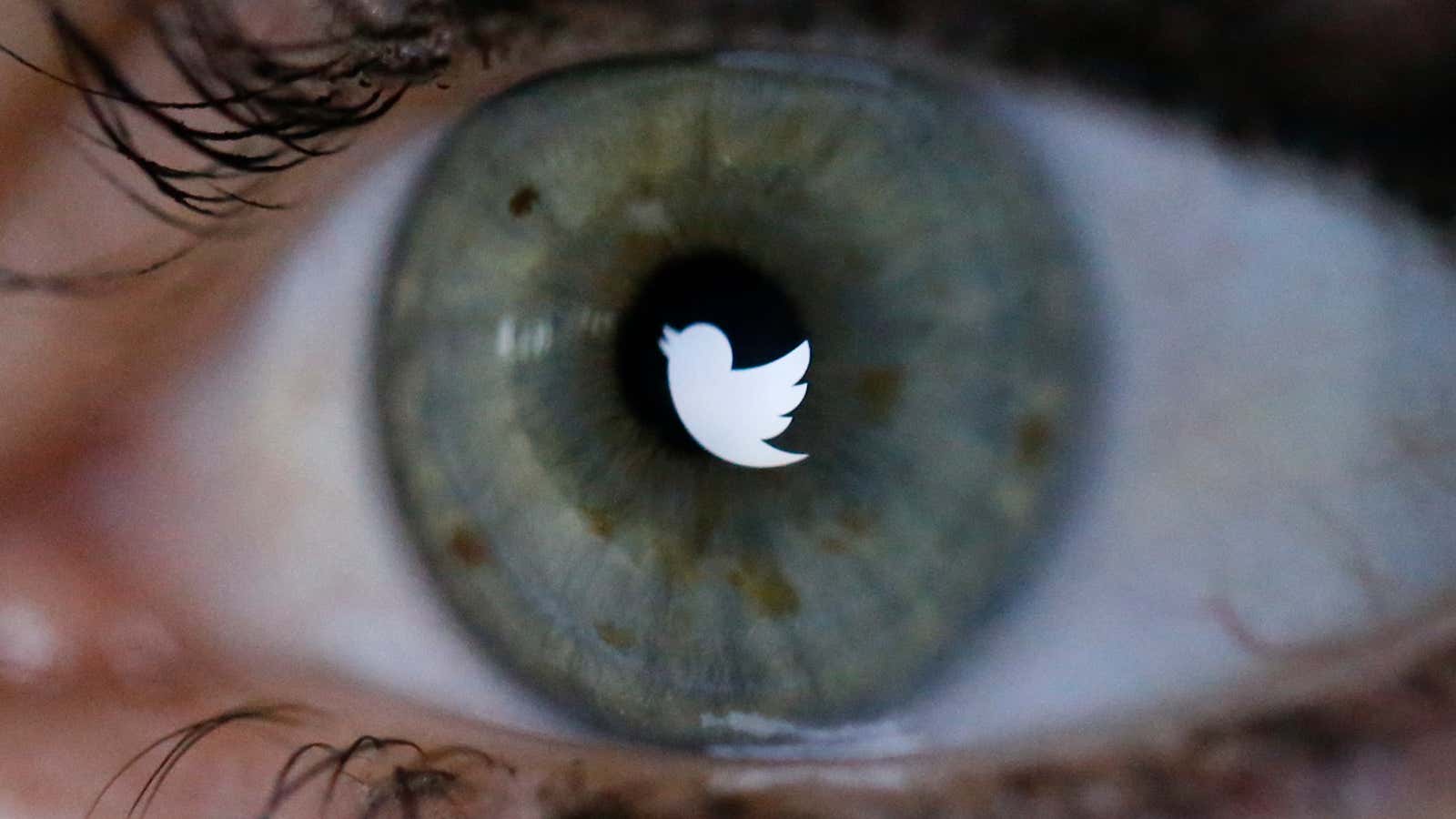Ever notice how the same jokes, phrases and hashtags keep cropping up again and again on social media? All those “I can’t even…” comments on Facebook, the emojis on Slack or Gchat, that endlessly snarky tone on Twitter. We all sound exactly the damn same.
Even larger-than-life personalities, such as Sarah Silverman or Amy Schumer, lose their idiosyncrasies on Twitter. They might write clever jokes that fit into the 140-character word limit, but there’s no silliness or slapstick. I can’t tell who’s goofy, who’s thoughtful, and who’s anxious from online profiles alone.
I noticed this groupspeak phenomenon after spending too long on social media, but scientific studies back me up. Tim Blumer, researcher of group media psychology at Ilmenau University of Technology in Germany, found that, online, there’s decreased expression of four out of five personality traits. (There’s also a decrease in the fifth trait, neuroticism, but it’s believed this is because emotional stability increases when people are online, rather than because there’s simply reduced expression of this trait.)
Blumer tells Quartz that, to a large extent, online interactions are simply not as rich as in-person conversations. Facial expressions and body language can’t be read online, he notes, and so, “we are limited in expressing our selves through a reduced number of channels.”
John Suler, a psychology professor at Rider University and the author of Psychology of the Digital Age: Humans Become Electric, tells Quartz that we’re further restrained by the limits of certain platforms.
“On Twitter, you’re reduced to 140 characters,” he says. “Because that’s so minimalist, it will tend to reduce everyone to sounding the same because they don’t have more space to be creative in how they write.”
As more of us use an increasing number of social media platforms—Instagram, Snapchat, Facebook, LinkedIn—we compartmentalize our online personalities to behave according to the expectations of each medium. So while Twitter is sarcastic and argumentative, Facebook posts tend to be more optimistic and reflective.
Richard Graham, a psychiatrist at Nightingale Hospital in London who specializes in technology addiction, tells Quartz that features within each platform encourage a certain genre of personality. “Each site will have its own culture,” he says. “For example, on a site where you can only click ‘like’, you’re already being nudged to express a particular range of feelings.”
On top of these limitations, there’s also the knowledge that whatever we write can then be read and re-read by friends, acquaintances, and strangers. This awareness means that, whenever I start to write a Tweet with brash humor in mind, I always pause, edit, and eventually delete. And so I’m left with a somewhat dull Twitter feed. Suler says that this common. “Researchers are talking about the hyper-personal or idealized self where the persona created online is very carefully composed,” he says. “There’s a sense that ‘I don’t want to accidentally say something that might present me in a negative light—I want to present myself in the most positive way that I can.’”
Of course, we’re not all mindless drones yet, and there are inevitably some differences in what we choose to share on social media. But while one Facebook friend may have a tendency to post Onion articles, while another dutifully catalogs the challenges of building her own startup, the differences are nowhere near as nuanced as in real life.
Suler says these small differences are due to brand distinctions, rather than detailed reflections of personalities:
“What’s your brand online, how are you presenting yourself? People often get reduced to a one-note song. You’ve got one person who’s the parent, one person who’s a body builder and really into self-improvement, someone else who’s a revolutionary spouting political comments. People often narrow down their personality to one particular feature of their lives. And they get reinforced for that with likes, and so they keep doing more of that.”
Social media is often entertaining, and it’s perfectly possible to fulfill the expectations of each platform and be funny on Twitter and heartwarming on Facebook, while making excellent use of emojis on Slack. But though some people do have great Twitter personalities, they frequently seem to have the same great Twitter personality—perhaps suggesting that when it comes to online banter, we’re not really getting to know each other much at all.
